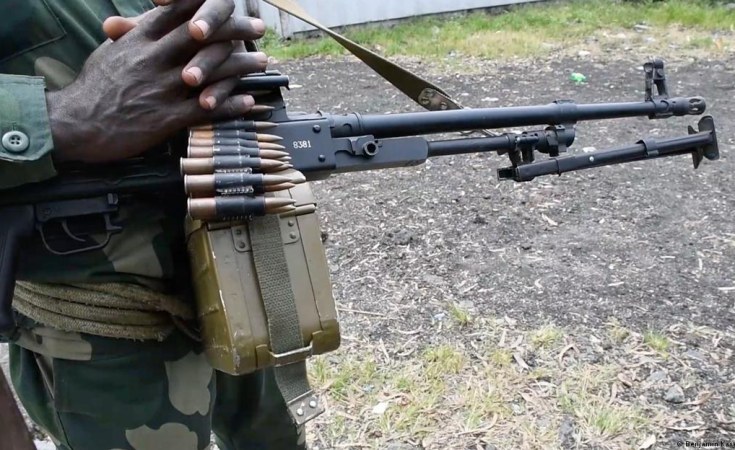As the Democratic Republic of Congo's decades-long struggle with insecurity heats up, increased regional military engagement heightens risks.
The past weekend brought news of yet another foreign military force deploying to the Democratic Republic of Congo (DRC). Angola, which has been involved in diplomatic efforts to stop the fighting between Congolese government forces and the M23 rebel group, announced it will send military forces to eastern Congo after a negotiated ceasefire collapsed. They will join the existing UN peacekeeping force, and forces from the East African Community, including Kenyan, Ugandan, South Sudanese and Burundian troops, in an attempt to halt the worsening insecurity in the country's east. The announcement coincided with the visit of the UN Security Council delegation to the DRC, underscoring just how alarming the security crisis has become.
The DRC's increasingly complicated stew of foreign forces and rebel groups raises real possibilities of interstate clashes, miscalculations, and escalations. Kinshasa accuses Kigali of backing the M23, and the evidence suggests they are right. Earlier this month there was an exchange of fire at the border, and a Congolese soldier was reportedly killed. Rwanda insists it is concerned about genocidal forces operating in DRC and intent on destabilizing Kigali. Additional armed groups, like the ADF in north Kivu, continue to exact a terrible price on civilians. Tensions and rivalries among Congo's eastern neighbors, and competition for access to Congolese resources, also factor into the motivations of some forces ostensibly deployed to improve the security situation. All of this complexity makes predictability hard to come by, increasing risk.
Already, the human costs are grave; three hundred thousand people were displaced by the fighting in February alone. The European Union has organized an airlift operation to bring urgently needed supplies to the city of Goma, which has been nearly besieged by the M23. Year after year of insecurity, despite international efforts to stabilize the situation, have also sown a deep mistrust among Congolese citizens. Many believe foreigners are more likely to exploit them and their resources than to provide meaningful help, and it is hard to argue with their general assessment that international efforts have not brought the safety and security they seek.
The intensifying conflict may also affect the timing of elections scheduled for the end of this year. For Congolese citizens, a sickening sense of déjà vu must be setting in. If the definition of insanity is attempting the same thing over and over and expecting a different result, it seems reasonable for the United States and others who recognize the DRC's global importance to look for fresh policy options that clarify the costs of escalation for all parties before an already terrible crisis infects an even broader swath of the continent.


